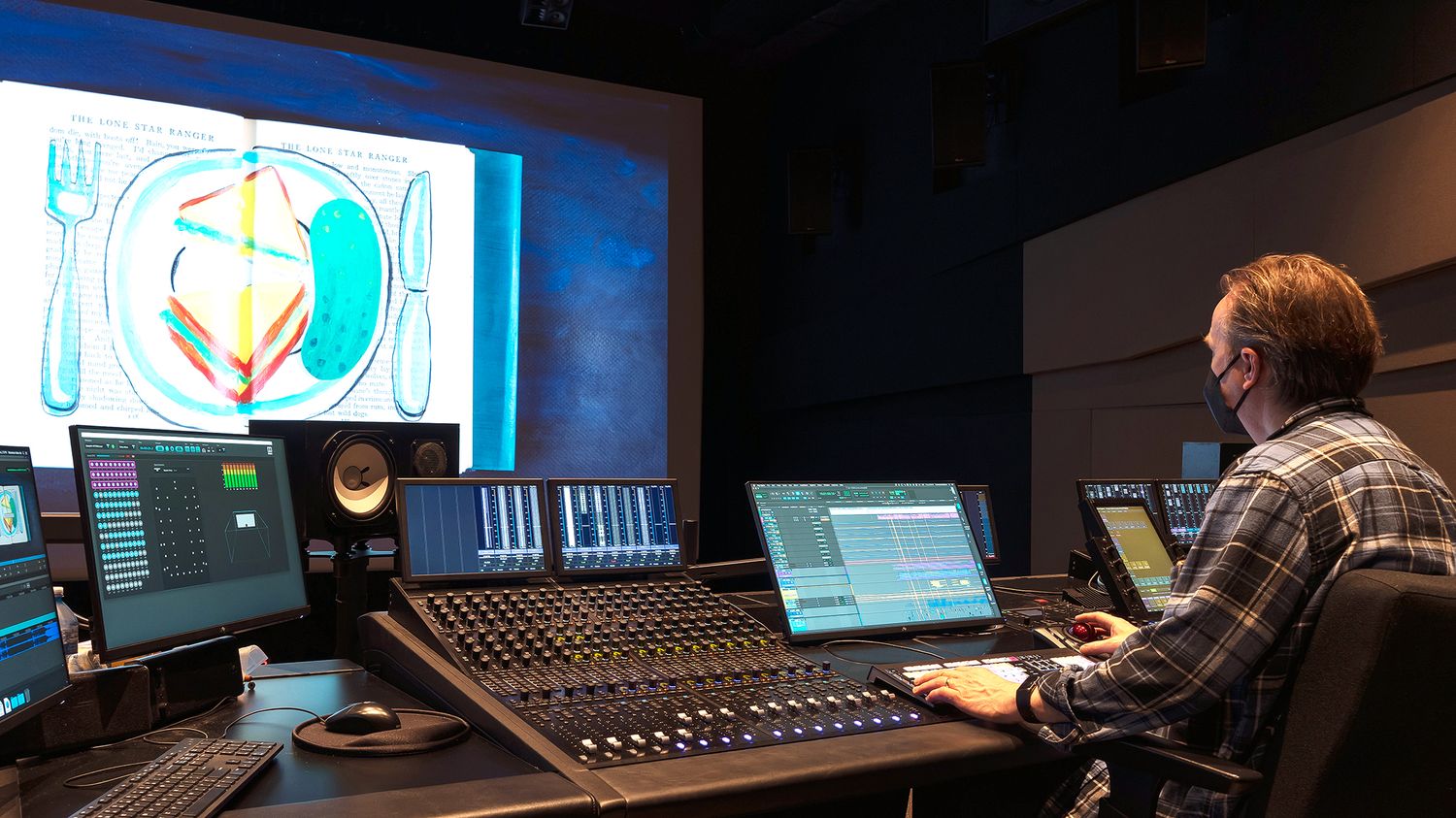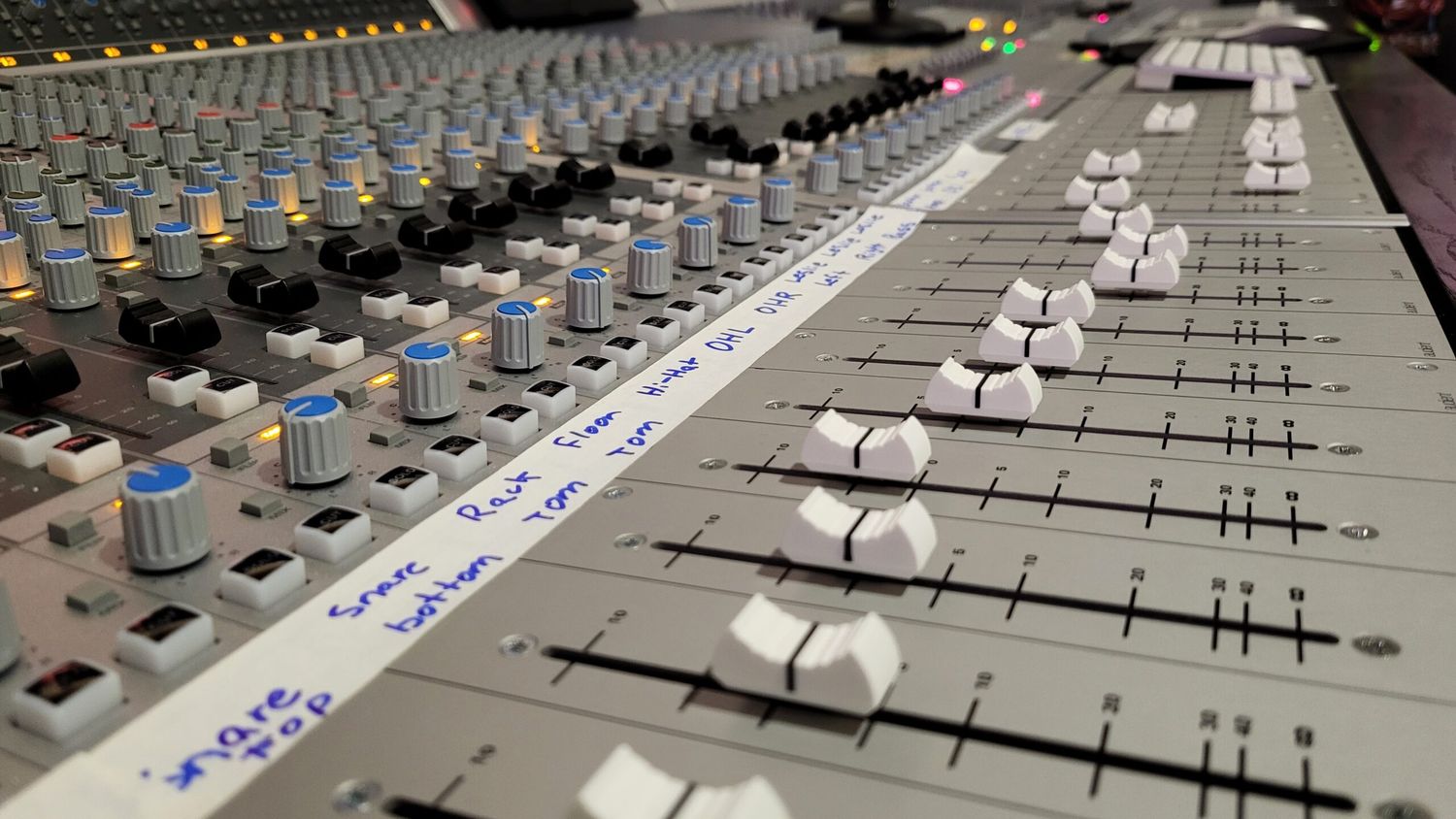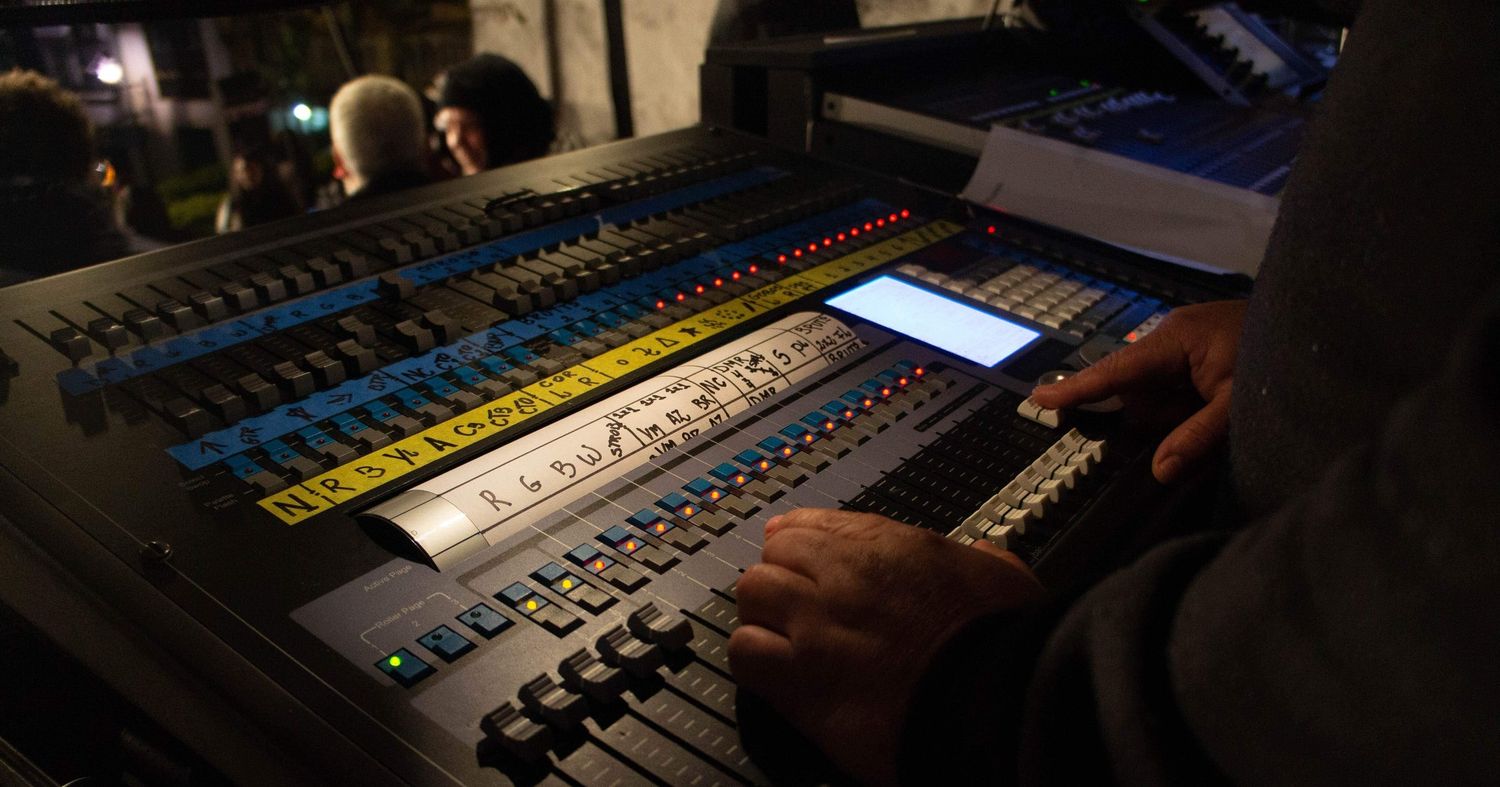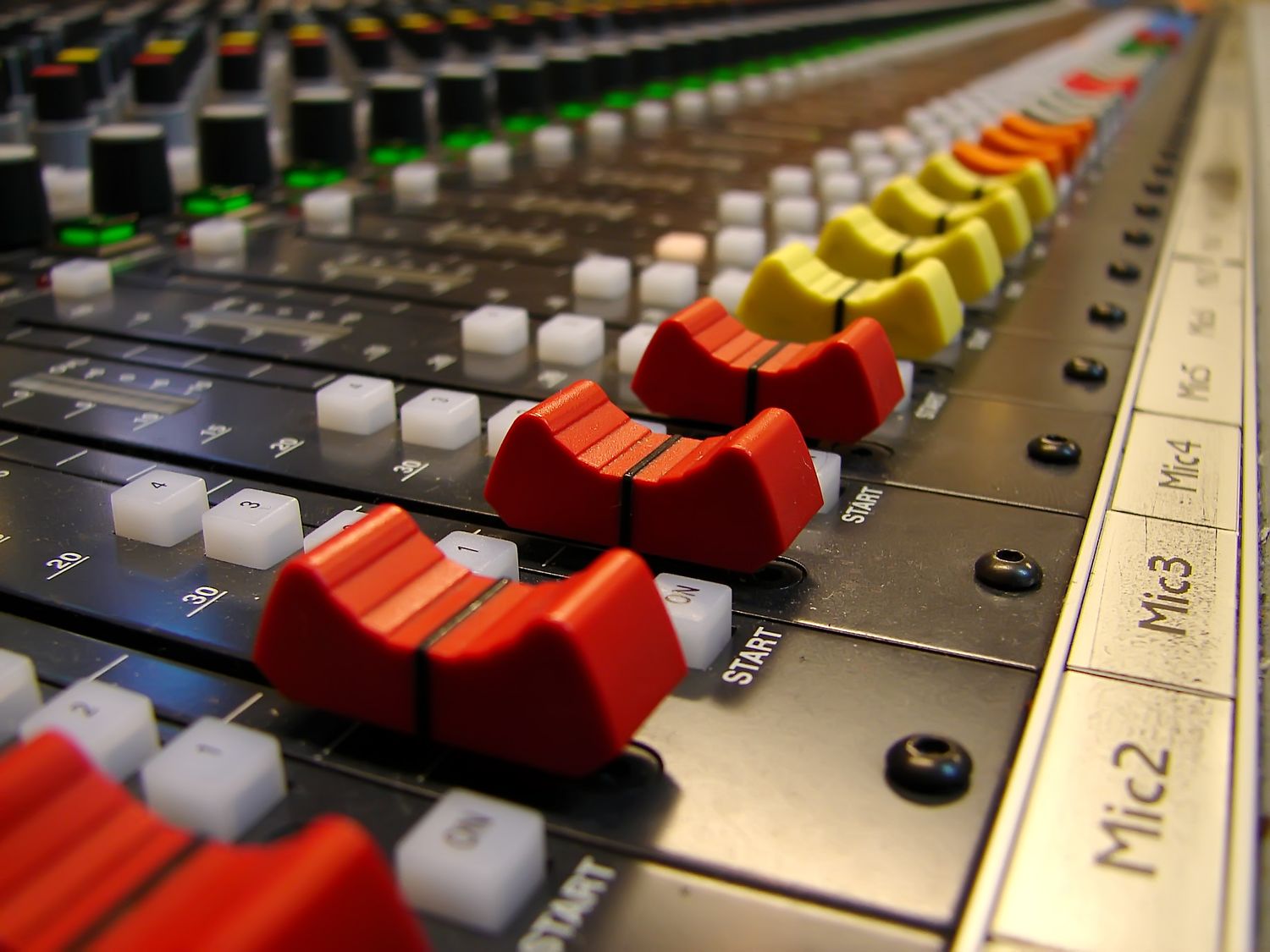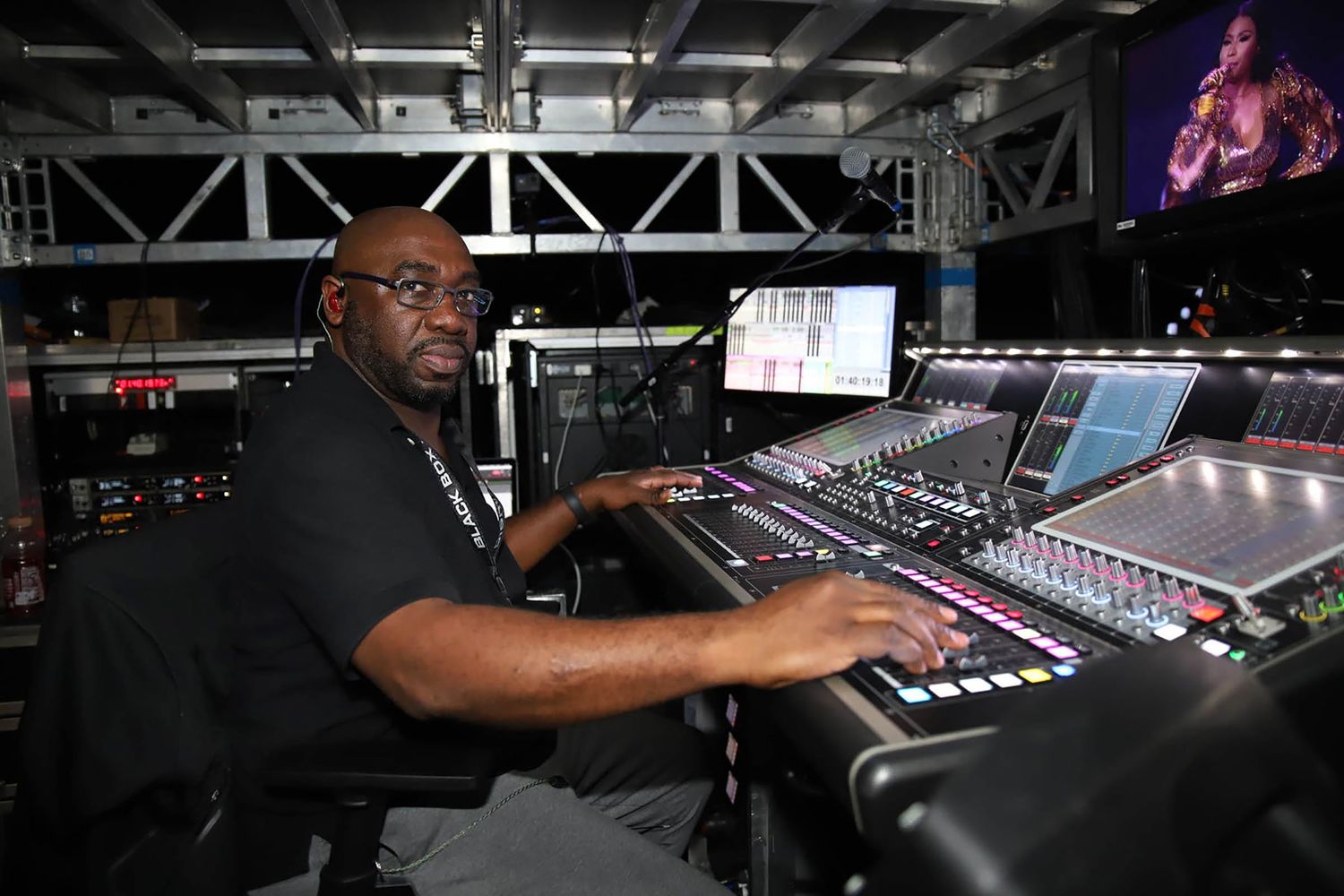Home>Production & Technology>Sound Engineer>How To Become A Sound Engineer In The UK
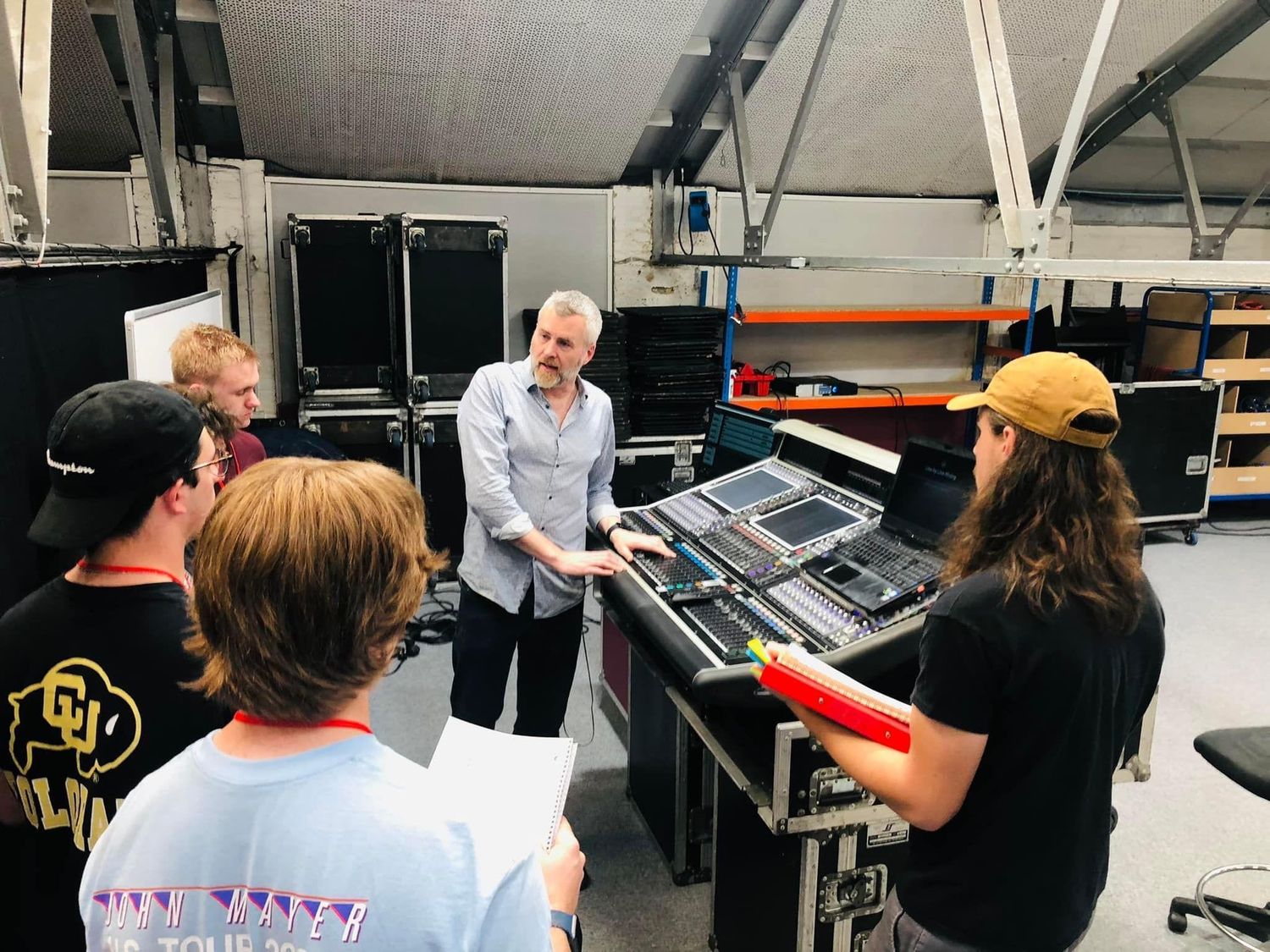

Sound Engineer
How To Become A Sound Engineer In The UK
Published: March 7, 2024
Learn how to become a successful sound engineer in the UK with our comprehensive guide. Discover the essential steps and qualifications needed to kickstart your career in sound engineering.
(Many of the links in this article redirect to a specific reviewed product. Your purchase of these products through affiliate links helps to generate commission for AudioLover.com, at no extra cost. Learn more)
Table of Contents
Education and Training Requirements
Becoming a sound engineer in the UK typically requires a blend of formal education, practical training, and hands-on experience. While there are no strict educational requirements to enter this field, obtaining a relevant qualification can significantly enhance your prospects and equip you with the necessary skills to thrive in the industry.
Academic Qualifications
A common pathway to becoming a sound engineer is pursuing a degree in audio engineering, sound production, or a related field. Many universities and colleges across the UK offer specialized courses that cover a wide range of topics, including acoustics, sound design, studio recording, and live sound reinforcement. These programs often provide a solid theoretical foundation and practical training, allowing students to gain a comprehensive understanding of sound engineering principles and techniques.
Vocational Training
In addition to formal education, aspiring sound engineers can benefit from vocational training programs and workshops offered by recording studios, production companies, and industry professionals. These hands-on training opportunities provide invaluable real-world experience and allow individuals to hone their technical skills in a professional setting. Moreover, participating in internships or apprenticeships can offer a practical learning environment and the chance to work alongside experienced professionals, gaining insights into the day-to-day operations of the industry.
Industry Certifications
Obtaining industry-recognized certifications, such as those offered by the Audio Engineering Society (AES) or the Institute of Sound and Communications Engineers (ISCE), can further validate your expertise and demonstrate your commitment to continuous learning and professional development. These certifications often require candidates to pass rigorous examinations and adhere to strict standards, ensuring that certified sound engineers possess the necessary knowledge and skills to excel in their roles.
Continuous Learning
Given the rapid advancements in audio technology and production techniques, sound engineers must stay abreast of the latest developments in the field. Engaging in continuous learning through workshops, seminars, and online courses can help professionals expand their knowledge base and adapt to evolving industry trends, ultimately enhancing their competitiveness and marketability.
In summary, while formal education and training are not mandatory prerequisites for pursuing a career in sound engineering, obtaining relevant qualifications, seeking practical training opportunities, and pursuing industry certifications can significantly bolster your credentials and equip you with the essential skills and knowledge needed to thrive in this dynamic and rewarding field.
Skills and Qualities Needed
Becoming a successful sound engineer in the UK requires a diverse set of skills and qualities that extend beyond technical expertise. While proficiency in audio equipment and recording techniques is essential, possessing certain personal attributes and soft skills can elevate your performance and set you apart in this competitive industry.
Technical Proficiency
A sound engineer must demonstrate a high level of technical proficiency in operating audio equipment, mixing consoles, recording software, and signal processing tools. Familiarity with various sound systems, microphones, and amplifiers is crucial for delivering optimal sound quality in diverse settings, whether in recording studios, live concerts, or broadcast environments.
Acoustic Knowledge
A deep understanding of acoustics and sound dynamics is fundamental for sound engineers. This includes comprehending the behavior of sound waves, room acoustics, and the impact of different surfaces and materials on sound propagation. By leveraging this knowledge, sound engineers can optimize audio setups and mitigate acoustic challenges to achieve superior sound reproduction.
Attention to Detail
Meticulous attention to detail is a hallmark of a proficient sound engineer. From mic placement and sound checks to post-production editing, every aspect of the audio production process demands precision and thoroughness. A keen eye for detail ensures that the final output meets the highest standards of clarity, balance, and fidelity.
Problem-Solving Skills
The ability to troubleshoot technical issues and adapt to unforeseen challenges is indispensable in the fast-paced world of sound engineering. Sound engineers must possess strong problem-solving skills to address equipment malfunctions, optimize sound quality in challenging venues, and rectify acoustic anomalies, all while under pressure.
Creativity and Innovation
While technical proficiency forms the backbone of sound engineering, creativity and innovation play a pivotal role in shaping memorable audio experiences. Sound engineers who can think outside the box, experiment with unconventional techniques, and push the boundaries of sonic artistry are poised to make a lasting impact in the industry.
Communication and Collaboration
Effective communication and collaboration skills are vital for sound engineers, especially in collaborative environments such as recording studios and live events. The ability to convey technical concepts clearly, work harmoniously with musicians and production teams, and adapt to diverse working styles is essential for delivering cohesive and exceptional audio productions.
Adaptability and Resilience
The dynamic nature of the entertainment industry demands that sound engineers remain adaptable and resilient in the face of evolving technologies and demanding schedules. Flexibility in adapting to new equipment, production workflows, and industry trends is crucial for sustained success in this field.
Passion for Sound
Above all, a genuine passion for sound and music is the driving force behind every accomplished sound engineer. A deep-rooted love for audio craftsmanship, coupled with an unwavering commitment to delivering unparalleled sonic experiences, fuels the dedication and perseverance required to excel in this multifaceted profession.
In essence, the fusion of technical prowess, creative ingenuity, interpersonal skills, and a profound passion for sound forms the bedrock of a well-rounded sound engineer in the UK. By embodying these skills and qualities, aspiring professionals can carve a fulfilling and impactful career in the dynamic realm of sound engineering.
Job Duties and Responsibilities
As a sound engineer in the UK, your role encompasses a diverse array of duties and responsibilities that are integral to the creation, capture, and delivery of exceptional audio experiences across various platforms. Whether working in recording studios, live concert venues, broadcast facilities, or post-production settings, sound engineers play a pivotal role in shaping the sonic landscape of diverse media and entertainment productions. Here are the key job duties and responsibilities associated with this dynamic profession:
-
Audio Recording and Mixing: Sound engineers are tasked with capturing high-quality audio recordings, whether in a studio environment or on location. This involves setting up microphones, configuring recording equipment, and overseeing the recording process to ensure optimal sound capture. Additionally, sound engineers are responsible for mixing and balancing audio tracks during post-production, enhancing clarity, tonal balance, and spatial positioning to achieve the desired sonic aesthetic.
-
Live Sound Reinforcement: In the realm of live events and concerts, sound engineers are entrusted with the critical task of managing live sound reinforcement. This includes setting up sound systems, conducting sound checks, and operating mixing consoles during performances to deliver pristine and immersive audio experiences for audiences.
-
Equipment Maintenance and Troubleshooting: Sound engineers are responsible for the maintenance, calibration, and upkeep of audio equipment and gear. This involves conducting regular inspections, troubleshooting technical issues, and ensuring that all audio hardware and software are functioning optimally to facilitate seamless production workflows.
-
Acoustic Optimization: Understanding the nuances of room acoustics and sound propagation is essential for sound engineers. They are tasked with optimizing acoustic environments, mitigating sound reflections and reverberations, and implementing soundproofing measures to create an ideal sonic environment for recording and mixing.
-
Collaboration with Artists and Producers: Sound engineers work closely with musicians, producers, and other industry professionals to actualize the sonic vision of a project. This collaborative process involves understanding the artistic intent, providing technical expertise, and translating creative concepts into captivating audio productions.
-
Post-Production Editing and Mastering: After recording and mixing audio tracks, sound engineers engage in post-production tasks such as editing, equalization, and mastering. This phase involves refining the audio content, ensuring consistency across tracks, and preparing the final output for distribution across various media platforms.
-
Compliance with Industry Standards: Sound engineers adhere to industry standards and best practices to uphold the quality and integrity of audio productions. This includes maintaining compliance with audio specifications, ensuring proper signal levels, and adhering to relevant technical guidelines for different mediums, such as broadcast, film, and streaming platforms.
-
Innovation and Experimentation: Embracing innovation and experimentation is a hallmark of sound engineering. Sound engineers often explore new recording techniques, utilize cutting-edge audio technologies, and push the boundaries of sonic creativity to deliver fresh and captivating audio experiences.
In essence, the job duties and responsibilities of a sound engineer in the UK encompass a multifaceted blend of technical expertise, creative collaboration, and meticulous attention to detail, all aimed at delivering exceptional audio content across a spectrum of mediums and applications.
Career Path and Advancement Opportunities
The career path for sound engineers in the UK is characterized by a multitude of opportunities for professional growth and advancement across diverse sectors of the entertainment and media industry. As individuals gain experience and expand their skill set, they can pursue various avenues that offer both vertical and lateral career progression.
Entry-Level Positions and Skill Development
Upon completing formal education and training, aspiring sound engineers often embark on their careers by securing entry-level positions in recording studios, live event companies, or audio production facilities. These roles typically involve assisting senior engineers, setting up equipment, and familiarizing oneself with industry-standard software and hardware. This initial phase serves as a crucial learning period, allowing individuals to refine their technical skills, gain practical experience, and build a strong foundation in audio engineering principles.
Specialization and Niche Expertise
As sound engineers accumulate experience and proficiency, they have the opportunity to specialize in specific areas of audio production, such as live sound reinforcement, studio recording, broadcast engineering, or post-production mastering. By honing their expertise in a particular niche, professionals can distinguish themselves in the industry and cater to specialized audio requirements, thereby expanding their career prospects and marketability.
Supervisory and Management Roles
With a proven track record of successful projects and a comprehensive understanding of audio production workflows, sound engineers can progress into supervisory and management positions. These roles may involve overseeing production teams, managing studio operations, or leading technical departments within audiovisual companies. By assuming leadership responsibilities, individuals can leverage their experience to guide and mentor junior engineers, while also contributing to strategic decision-making and project management.
Entrepreneurship and Freelancing
Many experienced sound engineers in the UK choose to venture into entrepreneurship by establishing their own recording studios, sound production companies, or freelance consultancy services. This entrepreneurial path offers the freedom to pursue independent projects, collaborate with diverse clients, and exercise creative autonomy in shaping audio productions. Additionally, freelancing allows sound engineers to diversify their portfolio, work on a range of projects, and cultivate a strong professional network within the industry.
Continuing Education and Specialized Training
To stay abreast of emerging technologies and industry trends, sound engineers can pursue advanced certifications, specialized training programs, and continuing education courses. By expanding their knowledge base and acquiring new skills, professionals can position themselves for advanced career opportunities in areas such as immersive audio, spatial sound design, audio for virtual reality (VR) and augmented reality (AR), and other cutting-edge audio applications.
Industry Advocacy and Thought Leadership
Established sound engineers often contribute to the industry as educators, mentors, and thought leaders. They may engage in teaching roles at educational institutions, deliver workshops and seminars, or publish articles and research papers on audio engineering topics. By sharing their expertise and insights, these professionals not only contribute to the development of the next generation of sound engineers but also elevate their own standing as respected authorities in the field.
In essence, the career path for sound engineers in the UK is characterized by a rich tapestry of opportunities for growth, specialization, entrepreneurship, and industry leadership. By navigating these diverse pathways, individuals can chart a fulfilling and impactful career trajectory in the dynamic realm of sound engineering.
Salary and Job Outlook
In the UK, the salary and job outlook for sound engineers are influenced by various factors, including experience, specialization, industry demand, and geographic location. As with many professions in the entertainment and media sector, the compensation for sound engineers can vary significantly based on these elements.
Entry-level sound engineers in the UK can typically expect to earn a starting salary that aligns with the national average for entry-level technical positions. As they gain experience and demonstrate proficiency in their roles, their earning potential tends to increase. Sound engineers who specialize in high-demand areas such as live event production, broadcast engineering, or immersive audio technologies may command higher salaries due to their specialized expertise and the specific demands of these sectors.
Moreover, the geographic location within the UK can also impact salary levels for sound engineers. Urban centers, particularly London and other major cities, often offer higher average salaries to accommodate the higher cost of living. Conversely, sound engineers working in rural or less densely populated areas may find that the average salaries are comparatively lower.
In terms of job outlook, the demand for sound engineers in the UK is influenced by the vibrancy of the entertainment, music, and media industries. As these sectors continue to evolve and diversify, the need for skilled sound engineers remains robust. The proliferation of streaming platforms, live events, gaming, virtual reality, and augmented reality experiences has expanded the avenues for audio content creation, thereby contributing to sustained demand for sound engineering expertise.
Furthermore, advancements in audio technologies and the increasing emphasis on high-quality audio experiences across various media platforms have further bolstered the job outlook for sound engineers. Professionals who stay abreast of emerging trends, embrace new audio production techniques, and demonstrate adaptability to evolving industry standards are well-positioned to capitalize on the expanding job opportunities within the field.
In summary, while the salary and job outlook for sound engineers in the UK can vary based on experience, specialization, and location, the overall trajectory indicates a favorable landscape with opportunities for career advancement and competitive compensation, especially for those who exhibit proficiency in cutting-edge audio technologies and demonstrate a commitment to continuous professional development.
Networking and Professional Development
Networking and professional development play pivotal roles in the career trajectory of sound engineers in the UK. Building a robust professional network and actively engaging in continuous development initiatives are essential for staying abreast of industry trends, accessing new opportunities, and fostering career growth.
Networking Opportunities
Sound engineers can expand their professional network through various channels, including industry events, trade shows, and professional associations. Attending conferences such as the Audio Engineering Society (AES) Convention and the Pro Sound Symposium provides valuable opportunities to connect with peers, industry experts, and potential collaborators. Additionally, joining professional organizations such as the Institute of Sound and Communications Engineers (ISCE) and the Music Producers Guild (MPG) facilitates networking, knowledge sharing, and access to industry resources.
Online Communities and Forums
Participating in online communities and forums tailored to sound engineering allows professionals to engage in discussions, seek advice, and establish connections with peers from around the globe. Platforms like Gearslutz, Pro Tools Expert, and Sound on Sound's forum provide virtual spaces for sharing insights, troubleshooting technical challenges, and staying informed about the latest developments in audio technology and production techniques.
Industry Events and Workshops
Attending workshops, masterclasses, and industry-specific events presents opportunities for skill enhancement, knowledge exchange, and networking. These gatherings often feature renowned professionals and thought leaders who impart valuable insights, practical tips, and industry best practices. Engaging with fellow attendees and speakers can lead to meaningful connections and potential collaborations on future projects.
Professional Development Initiatives
Sound engineers can pursue professional development through specialized training programs, certifications, and continuing education courses. Platforms such as Berklee Online, Coursera, and LinkedIn Learning offer a plethora of courses covering topics ranging from advanced mixing techniques to immersive audio and spatial sound design. Acquiring new skills and certifications not only enhances professional competence but also broadens career prospects and industry recognition.
Mentorship and Collaboration
Seeking mentorship from seasoned professionals and collaborating with industry veterans can provide invaluable guidance, insights, and career mentorship. Establishing mentor-mentee relationships fosters knowledge transfer, facilitates career guidance, and opens doors to new opportunities within the industry. Furthermore, collaborating with experienced professionals on projects can offer exposure to diverse workflows, creative methodologies, and industry connections.
Industry Advocacy and Thought Leadership
Active participation in industry advocacy, thought leadership, and knowledge sharing initiatives elevates a sound engineer's professional profile and industry influence. Contributing articles to industry publications, delivering presentations at industry events, and engaging in educational outreach activities not only position professionals as authoritative voices in the field but also expand their network and visibility within the industry.
In essence, networking and professional development are integral components of a sound engineer's career journey, offering avenues for collaboration, skill enhancement, mentorship, and industry recognition. By actively engaging in networking opportunities and prioritizing continuous professional development, sound engineers can cultivate a thriving career and contribute to the dynamic landscape of audio engineering in the UK.


